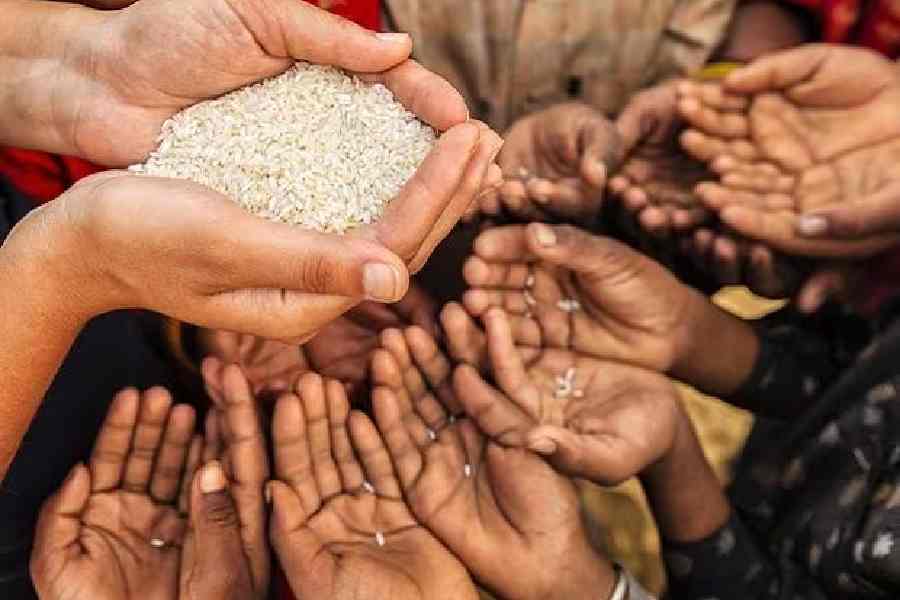At a recent event, the Union minister of women and child development, Smriti Irani, rejected India’s poor rank of 111 out of 125 countries on the Global Hunger Index, claiming that it did not reflect reality. Such an obtuse dismissal of globally respected registers has been the wont of the dispensation Ms Irani is part of. The motive is to discredit assessments that reveal crucial gaps in the performance of the Narendra Modi government. But Ms Irani took things a step further by making light of a serious issue with crude humour. Such trivialisation of hunger in a country where there were over 14,56,000 severely malnourished children last year — this is a conservative estimate put out by Ms Irani’s own ministry — is insensitive, to say the least. It does not sit well with the conduct expected of an elected representative of the people. What is even more worrying — revealing — is that Ms Irani’s comments drew loud laughter from an audience that apparently comprised India’s brightest women entrepreneurs and leaders. This goes to show that the privileged, much like the government, remains oblivious to the economic gaps and the realities on the ground. And the reality, if Ms Irani had the courage to acknowledge it, is a sobering one. Pakistan, an economy in the doldrums, has performed better on the GHI than India. Bangladesh, Nepal and Sri Lanka, too, are ranked higher. It is pertinent to note that Ms Irani has questioned the GHI’s methodology. Had the index taken into consideration figures on calorie intake collected by the National Sample Survey Office, India’s performance would have been bleaker.
The Centre’s propensity to burrow its head in the sand notwithstanding, the principal contours of India’s hunger story are well-known. Deepening inequality, leakages in the public distribution system, poverty, agrarian distress and climate-change-induced deprivations are cited as the causes of hunger being persistent. But some other challenges remain under-reported. These include the bureaucracy’s propensity to gloss over hunger deaths as demises owing to physical ailments as well as exclusion because of technological interventions: the problematic linking of ration cards to Aadhaar was one instance of the latter. The disregard with which an elected government treats victims of hunger is an instance of immorality triumphing over welfarism. Can the government’s indifference be explained by the fact that hunger is yet to become a political hot potato?










